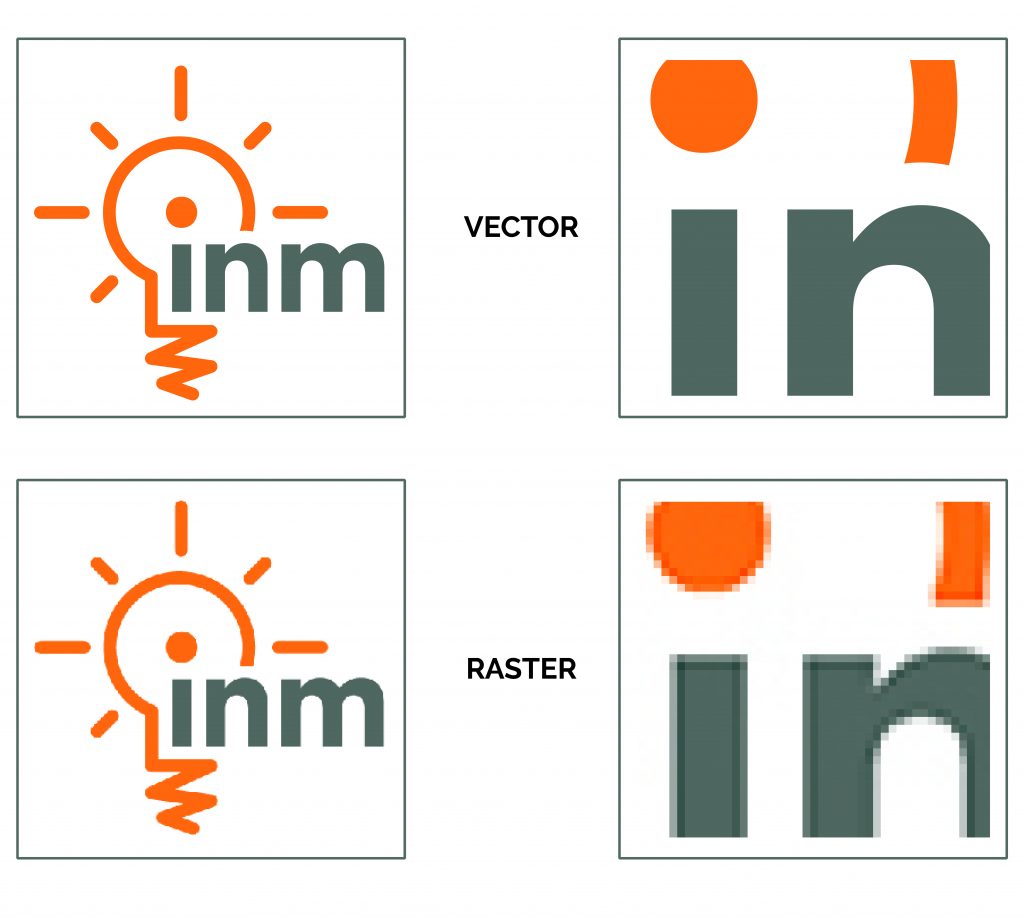We hear it often – “Can’t you just use the logo that’s on our website?”
Yep, we can. But we don’t want to because…well, quality. That format works great for your website, but not for printing a logo on merchandise.
Here’s why.
You’ve probably heard of pixels – those tiny shaded squares that make up an image. A logo that is featured on a corporate website is made up of a specific number and various shades of those pixels, making it a raster image. Chances are, if we pulled a raster image off a website and slapped it on a mug, the result would look like something straight out of a Minecraft game. Yeah, most gamers might think it looks pretty sweet, but it wouldn’t be a good representation of a structured brand design. Most corporate brand guidelines actually discourage a pixelated logo because it compromises the integrity of the brand (unless your brand is Minecraft, of course). When the image is enlarged, say for a billboard, the little squares just get bigger – the quality of the logo decreases as the size increases.
On the other hand, a vector graphic, what our factories usually require for decorating products, is mapped using specific mathematical equations that…yeah, that’s too technical – they are created with smooth edges. These files maintain their quality at any size – whether enlarged or compressed.
To put it in perspective, it’s like wearing corrective lenses: raster is “blurry” vision without corrective lenses, and vector is the crisp and focused vision obtained with the use of corrective lenses.
Here’s a visual reference (for those of you with 20/20 vision):
See the difference? The logos look nearly identical in a smaller format, but you lose details on the raster image when the logo is enlarged. That’s how the logo would print on branded merchandise as well.
You can usually determine the format by the extension of the file – the letters after the “dot”.
The most common file extensions for raster (pixelated) images are shown below, and are created or edited in platforms such as Adobe Photoshop.
.png .jpg .gif .psd
The most common file extensions for vector images are shown below, and are created or edited in platforms such as Adobe Illustrator.
.eps .ai .pdf .svg
Don’t have your logo in vector format?
No problem. That’s one of the many services we can provide for you – converting it into a quality and scalable format.
Now you know why quality art files produce the best quality promotional products.





